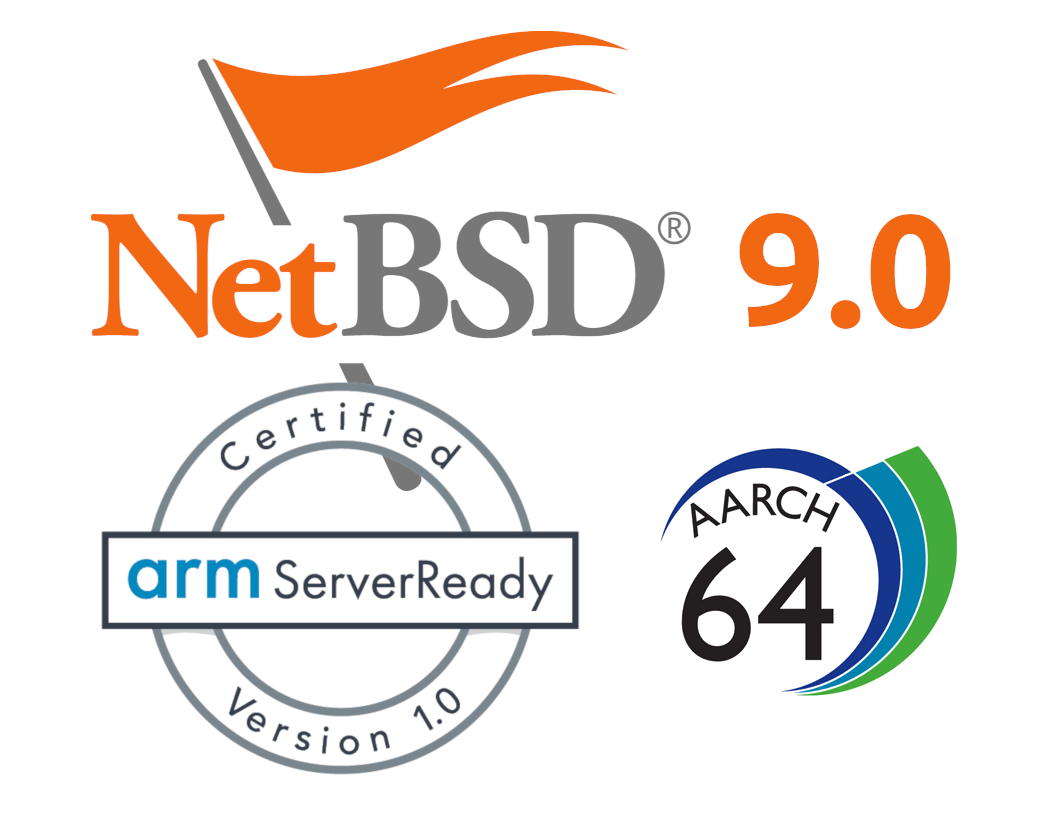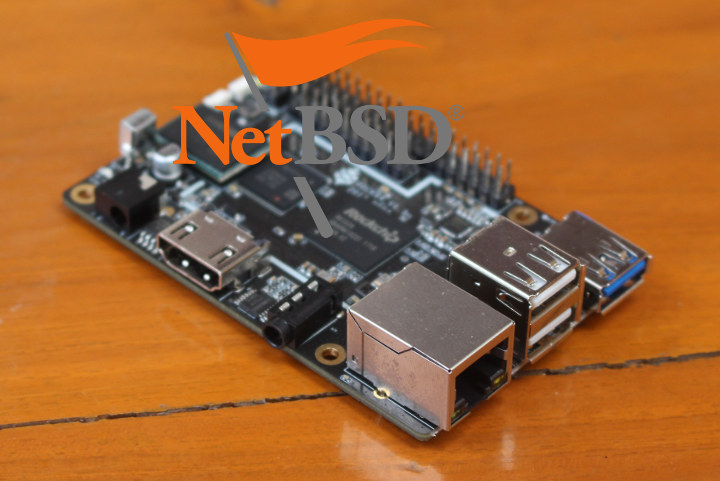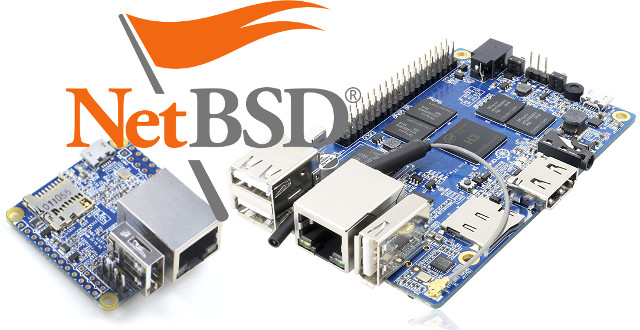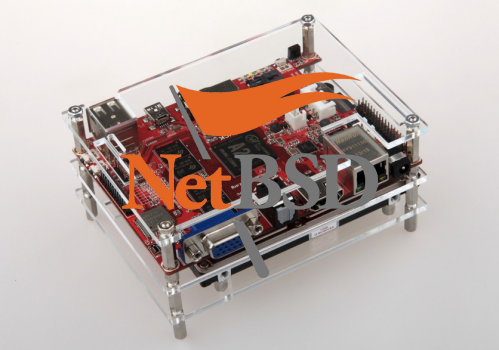Yesterday, we wrote about Raspberry Pi 4 getting UEFI+ACPI firmware for Arm SSBR compliance allowing the board to run operating systems designed for “Arm ServerReady” servers out of the box. NetBSD 9.0 was just released on February 14, 2020, with support for Aarch64 (64-bit Arm) which had been in the works for a few years, and includes support for “Arm ServerReady” compliant machines (SBBR+SBSA). NetBSD 9.0 main changes related to hardware support: Support for AArch64 (64-bit Armv8-A) machines Compatibility with “Arm ServerReady” compliant machines (SBBR+SBSA) using ACPI. Tested on Amazon Graviton and Graviton2 (including bare metal instances), AMD Opteron A1100, Ampere eMAG 8180, Cavium ThunderX, Marvell ARMADA 8040, QEMU w/ Tianocore EDK2 Symmetric and asymmetrical multiprocessing support (big.LITTLE) Support for running 32-bit binaries via COMPAT_NETBSD32 on CPUs that support it Single GENERIC64 kernel supports ACPI and device tree based booting Supported SoCs Allwinner A64, H5, H6 Amlogic S905, S805X, S905D, […]
NetBSD ARM64 Images Now Available with SMP for Raspberry Pi 3, Some NanoPi Boards, and Pine64 Boards
NetBSD on Arm started in 2014 with the release of version 7.0, and last year device tree support was implemented and tested on some Allwinner H3 boards. But apparently, so far NetBSD only supported 32-bit Arm, with initial support for 64-bit Arm (ARM64) committed last April, but good progress has been made, and NetBSD ARM64 bootable firmware images are now available with SMP (multi-core) support. Eight different NetBSD ARM64 images can be downloaded: Generic NetBSD 64-bit image for Raspberry Pi 3 and NVIDIA Tegra X1 Two images for FriendlyELEC boards namely NanoPi NEO2 and NEO Plus2 boards Five images for the following Pine64 boards and hardware platforms Pine A64/A64+ Pine A64-LTS / Sopine with baseboard Pine H64 Pinebook laptop ROCK64 (ROCK64Pro not yet supported) The supported hardware matrix shows most features are supported, but there are still a few things missing such as GPU, crypto and MIPI CSI on all […]
NetBSD is Now Running on Allwinner H3 Boards
Most people will run Linux kernel on development boards because it does the job, and that’s usually the only option. But others have been working on NetBSD kernel for Allwinner H3 boards, and it’s now running on various H3 boards with serial console, USB, Ethernet, SD card, and eMMC flash working. Jared McNeill explains they first had to deal with low-level code to initialize the CPU and MMU, before using a U-boot layer to disguise NetBSD as the Linux kernel in order to load kernel and device tree file. The code then jumps to the generic ARM FDT implementation of initarm to relocate DTB data and perform other steps, and finally they can enumerated devices. This is explained in greater details in the aforelinked blog post on NetBSD website. Jared tested the implementation on NanoPi NEO and Orange Pi Plus 2E, but others have reported success on various hardware based […]
NetBSD 7.0 To Support Multi-Core ARM Processors from Allwinner and Freescale
NetBSD is an open source Unix-like Open Source operating system running on a wide range of platforms, from servers and desktop systems to embedded devices. The operating system has supported ARM since 1996, with more recent ports for ARM Cortex A8 and Raspberry Pi, but until recently it did not support SMP (Symmetric multiprocessing) to support more than one core. But NetBSD has now fixed this “anomaly” and the following Allwinner A20/A31 and Freescale i.MX6 boards are now supported: Banana Pi (BPI) Cubieboard 2 (CUBIEBOARD) Cubietruck (CUBIETRUCK) Merrii Hummingbird A31 (HUMMINGBIRD_A31) CUBOX-I NITROGEN6X You can give it a try on Allwinner boards by creating an SD card following instructions on NetBSD / Allwinner Wiki. There does not seem to be documentation for the Freescale boards yet. If Allwinner documentation is up-to-date, this is a headless image, as framebuffer, HDMI, etc… are still in to TODO list, but Gigabit Ethernet and […]






